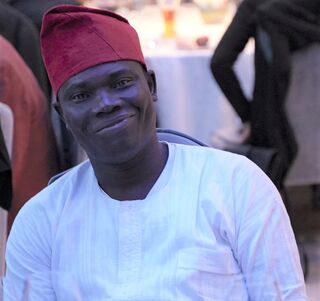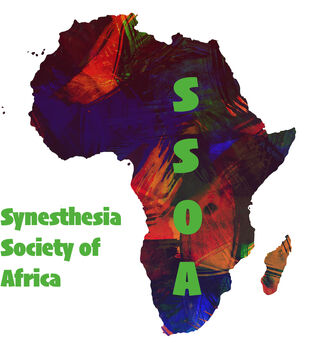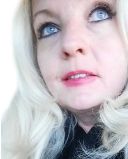Synesthesia
Neurodiverse Africa
The first NGO for synesthetes on the African continent has just been registered.
Posted December 1, 2020 Reviewed by Devon Frye
The Synesthesia Society of Africa (SSOA) has just achieved registration as a Non-Governmental Organization (NGO).

An NGO is a voluntary group of individuals or organizations, most often not affiliated with any government. They are service-based and advocacy-driven. The majority are nonprofit organizations.
This is, in the view of many, a victory for pan-African neurological outliers who have been unintentionally under-represented in research, the arts, and related business until now.
And it can also be seen as an inspiring example of cooperation across national boundaries: The United States-based International Association of Synaesthetes, Artists, and Scientists (IASAS), the German Synesthesia Association, and other national groups were instrumental in getting the SSOA launched.
Abiola Ogunsanwo of Nigeria is heading the new organization with a board of nine other African synesthetes. To hear other synesthesia thought leaders tell it, Mr. Ogunsanwo was born for the role.
"Abiola is a natural diplomat," says Carolyn CC Hart of the IASAS, who helped shepherd the new organization into being. "He was a bit of a star at the IASAS Moscow conference: so warm, engaging, and determined. I think everyone at the symposium knew that he would return to Nigeria on fire and ready to launch the SSOA.
"The international synesthesia community has shown him such willingness to help the Synesthesia Society of Africa thrive," she adds. "This new NGO really feels special, an African-led organization that has support from so many synesthesia nonprofits: in Germany, Spain, the U.K., the U.S., etc. This is a watershed moment, and Abiola has brought the SSOA to fruition."
Gabriela Ernst, who supported the formation of the organization from her leadership role at the German Synesthesia Association, agreed. "He will be the right person as he is very motivated and passionate about creating an African synesthesia community."
Patricia Lynne Duffy, co-founder of the American Synesthesia Association (ASA), an expert on synesthesia in literature, and author of the first book about synesthesia by a synesthete, Blue Cats and Chartreuse Kittens: How Synesthetes Color Their Worlds, is a United Nations editor and instructor with vast global experience. She was delighted to learn of the development.

"As an NGO, the Synesthesia Society of Africa will take its place in the world community among like-minded individuals and organizations working to further education about the unique perceptions of synesthesia and the variety of ways human beings can [exist] in the world we share," says Ms. Duffy.
"Greater awareness of our diversity—and specifically, our neuro-diversity—has so many implications for education, art, and the development of human potential. It is wonderful that synesthesia studies are reaching all parts of the globe, thanks to creative and committed people like Abiola Ogunsanwo. The SSOA promises to be a major force in promoting greater awareness of neuro-diversity on the African continent and around the world."
In the course of her work for the UN, Ms. Duffy made several trips to Africa (working at UN duty stations in Addis Ababa, Arusha, Entebbe, Kigali, Monrovia, and Nairobi). "I was struck by the innovation and vibrancy I found in the diverse cultures—ripe for furthering awareness of synesthesia and taking our evolving understanding of it in new directions," she says.
Dr. Sheila Butungi of Uganda, a government veterinarian and board member of the new organization, is hopeful about what the SSOA can do in the future. "It is exciting to have a society; more people on the continent who are gifted with synesthesia can discover themselves... This new journey with the society will help create awareness for those who have been curious about themselves. Synesthesia is full of so much talent and through this, individuals, parents, educators, the business community, artists, scientists, and researchers alike [can] be sensitized about this gift."
I spoke to Mr. Ogunsanwo about the genesis of the important group.
How did SSOA begin?
It was like a dream for me because, in 2019, I attended the International Association of Synaesthetes, Artists, and Scientists Symposium in Moscow, Russia. It was a great one for me. I have a daughter, who also has forms of synesthesia, but until I went to the symposium, I didn’t know how strong those traits were in her. She has a little bit more synesthesia than I do.
While the seminar in Moscow has helped me understand synesthesia, the symposium started a discussion with the IASAS executive board in which they promised to help me set up an NGO in Africa. It was a good move for me. After I returned home to Nigeria, I did a lot of searching on the internet for individuals with synesthesia in Africa; I found a few people. I contacted them so that we could start something on this.
Our Synesthesia Society of Africa (SSOA) trustees are me (Abiola Ogunsanwo, Nigeria); Afolabi Babs, Nigeria; Nonofo Molefe, Botswana; Dr. Celsus Sente, Uganda; Dr. Sheila Butungi, Uganda; Ninah Mutoni, Rwanda; and advisor Annette Wanyoni, Kenya. With the support of IASAS, this is how we will get to the next stage.
What was the road to achieving NGO status like?
Over the five days of the Moscow symposium, the IASAS executive board and I had many conversations about launching an African synesthesia organization. What would it take to get this project started? Who would be willing to serve as a trustee? How can we learn the steps for registering an NGO in Nigeria?
Registering an NGO in Africa, particularly in Nigeria, is not easy because of government regulations. They want to know what are the aims and objectives of the NGO, all the details—such as who is the founder and who are the trustees—and making sure the NGO would not fight the government or be against the policies of the government. We needed to hire a lawyer who was willing to assist us in doing this.
Please describe your own forms of synesthesia and how you discovered it in yourself.
My own form of synesthesia is like tastes and sound combined. Sometimes, the tastes of things—for example, food with too much salt—bring me close to forms of synesthesia. The second is sound. Sometimes, if I hear a drum, it makes me feel somehow as if the sound goes into my brain to create emotion.
Actually, it is something old in our society in Africa. But most Africans see these experiences as a form of witchcraft or something unusual that is not good to talk about.
What is your life like in Nigeria?
I was born in late 1970, in the Southwest part of Nigeria in a city called Ago Iwoye. The language we speak is Ijebu, part of the Yoruba spoken language. In early 1990, I moved to Lagos with my family. That’s where I went to school and eventually started my own life. Like many African countries, life is different for us because our culture makes us backward in many ways, but is rich in traditions.
I like to meet people—to share and learn from them—and also I like traveling a lot. I have been to a few countries in my life such as Mauritius, Ghana, South Africa, and Russia. With this synesthesia society, I hope I will be able to travel and share knowledge of synesthesia to different parts of Africa. It is hard because synesthesia is not well understood on the African continent and gets caught up in superstitions.
Are you also a mirror-touch synesthete (also known as an empath)? How hard is that given world events?
Not really in terms of synesthesia, but sometimes I feel disturbing concern for the events around the world. I also have issues when it comes to sound. For example, if I hear a strange sound, it makes me feel odd somehow in my brain. However, as I mentioned earlier, I have a young daughter who has mirror-touch.
How many members does SSOA have? Is each African nation represented? If not, which ones are included?
As a member and trustee, my wish is to have members in SSOA across the African continent. But for now, we have members in Botswana, Uganda, Rwanda, Nigeria, Kenya, and the Benin Republic. We are still looking for other members.
What else would you like readers to know?
We want the other parts of the world to know that Africa has a synesthesia society, too. Just to summarize: It is not only white people that have synesthesia; we have it here in Africa. We Africans also feel sounds and tastes and can experience any form of synesthesia.
Our website can be found here; our Twitter handle is @ssoafrica; our Facebook page can be found here.




